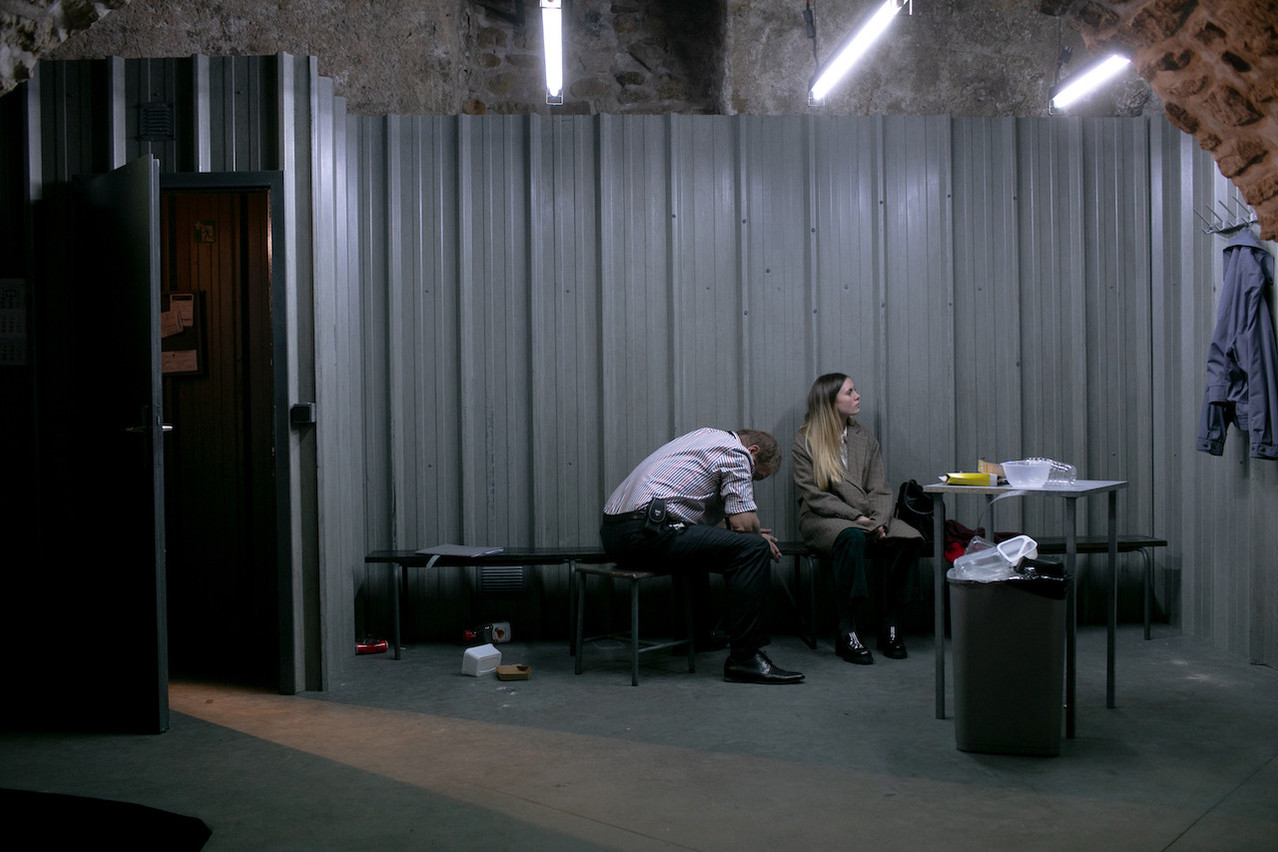Can victims and perpetrators of the most contemptible crimes ever escape their past? Can they find respite and closure in confrontation? Those are the basic questions posed by David Harrower in his stunningly bleak play Blackbird, a two-hander power struggle between tormented souls.
An emotional rollercoaster ride, Blackbird opens with a bang as Ray (Jules Werner) pushes Una (Jil Devresse) through a door onto the stage. The single set, superbly designed by Anouk Schiltz, is a grim litter-strewn break room in an anonymous factory, harshly lit by strip-lights and walled with corrugated steel. It could even be mistaken for the visiting room in a prison.
Despite the violent entry it is Ray, a red-eyed man in his early fifties wearing cheap supervisory management garb, who is agitated, while Una, an elegant, smartly dressed young woman, appears initially to be in control. It is she, after all, who initiated this meeting some 15 years after their illicit relationship ended with the arrest of Ray when she was just twelve years old and he was forty.
Read also
Muller has paced the play perfectly, and the actors have mastered what Werner in an interview called the “ping-pong” rhythm of the dialogue as Ray and Una interrupt and speak over each other. Indeed, the actors are perfectly in tune, the chemistry intense as Harrower introduces twists and turns in the narrative that will leave the audience stunned, close to tears and squirming uncomfortably.
Eschewing judgement
The revelations throughout the play are drip-fed to the audience in between outbursts of raw emotion, accusations and, more rarely, self-reflection that Werner and Devresse deliver with exquisite equanimity. Although the audience may feel they are sometimes being slapped in the face by the sheer awfulness of what they are hearing and seeing, Harrower eschews judgement and allows his characters space to tell their story-- unreliable as some of their testimony may be. What is clear is that the damage has been done and cannot be undone, no matter the amount of hand-wringing, self-pity and recrimination.
In addition to some haunting music by local artist Claire Parsons, Muller also uses PJ Harvey’s Down by the Water--a heartbreaking tale of filicide--to good effect in between scenes. Una’s soul has been killed by Ray as well as the suffering and shaming she has endured since the events of 15 years ago, even at the hands of her own mother. Antoine Colla’s appropriately severe and unforgiving lighting design also adds to the sense of forlorn and disgust, while between scenes strobes of red lights hint at danger and menace but in a darkened hue that evokes erotic cabarets.
The moral ambiguity of the narrative, and particularly the ending, begs the audience to pose their own questions--Harrower certainly does not spoon-feed us any easy answers. But this is a sensational production that will live long in the memory and bodes well for the Théâtre du Centaure’s ambition to put on more plays in English and attract new audiences.
Blackbird continues at Théâtre du Centaure (4 Grand Rue in Luxembourg City) on 16, 17, 18, 20, 23, 24, 25, and 27 November at 8pm (except on Thursdays and Sundays when it is at 6.30pm). .
